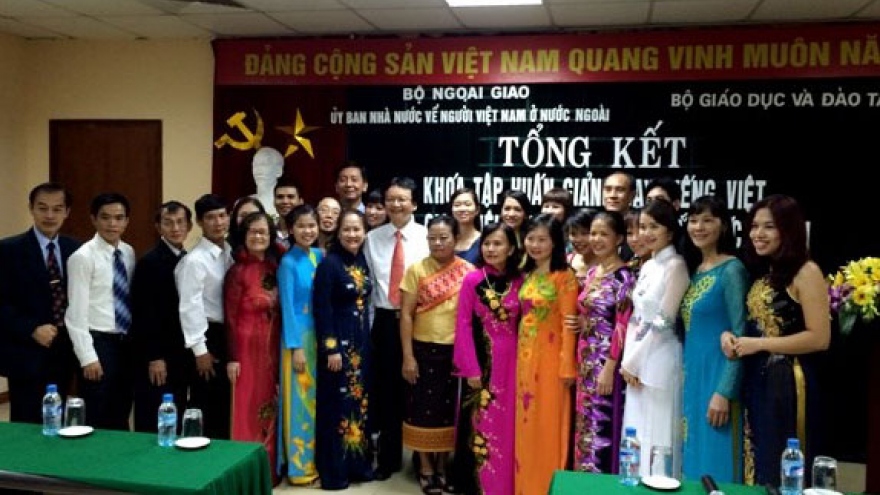First language assessment symposium opens in HCM City
VOV.VN - Vietnam’s first Language Assessment Symposium opened on May 23 in Ho Chi Minh City, bringing together the best UK and Vietnamese testing and assessment experts.
 |
Dr Vu Thi Phuong Anh, Vice Director of the Educational Quality Training and Support Centre, Association for Vietnamese University and Colleges, presented findings of her most recent study on classroom based assessment in Vietnam. Classroom based assessment includes informal day-to-day teacher-student interactions and formal tests of students’ progress.
Classroom assessment is universally viewed as a crucial part in improving students’ learning; however, the research reveals that formative assessment is overlooked by many teachers due to class size and their heavy workload. Further outcomes of her study include recommendations on how to address those challenges and to better use assessment to effectively improve the quality of English teaching and learning in Vietnam.
Dr Jamie Dunlea, Senior Researcher inLanguage Assessment from the British Council talked about using test specifications to help design better classroom tasks. A test specification is a design template which makes clear the purpose of the task, and criteria for input texts and expected responses.
Specifications designed based on the socio-cognitive model, link to different levels of proficiency. Test tasks which use these specifications are useful as they facilitate the teaching and learning of abilities relevant to a level rather than teaching to the test itself.
Jamie highlights Aptis, the modern, flexible English language proficiency test designed by the British Council, as a good example of how a test can guide teachers in designing classroom activities towards two prime purposes: preparing students for an exam and, more importantly, preparing them for their real-life purposes.
Nguyen Thi Mai Huu, Director of the National Foreign Languages 2020 Project, Ministry of Education and Training of Vietnam, talked about the lack of standard procedures that can guide institutions and academics through the process of conducting assessment. She introduced a manual which was written to address the issue.
The manual includes five major assessment development stages: 1. Planning and designing, 2. Development, 3. Delivery, 4. Marking and reporting results, 5. Review and monitoring. The manual suggests procedures for quality control and assurance, and ways to solve technical issues at each stage.
Other presentations touch on various topics such as assessing primary learners, ways to assess writing performance, or utilizing teamwork to enhance ongoing assessment of productive skills.
Cherry Gough, Director, British Council Vietnam said, ‘Through the Vietnam’s Language Assessment Symposium, the UK reiterates its support for the Ministry of Education and Training’s aims to improve learning and teaching of English in Vietnam, as well as its direct support to teachers and learners of English through the British Council.
Knowledge of English language creates opportunities for international education, better jobs, and connections with people and organisations across the world.
Tests such as Aptis and IELTS encourage teachers to teach students to use language for real-life purposes, rather than just prepare them for the test itself, and this symposium will help classroom teachers to develop their own tests and classroom activities to do the same..’

